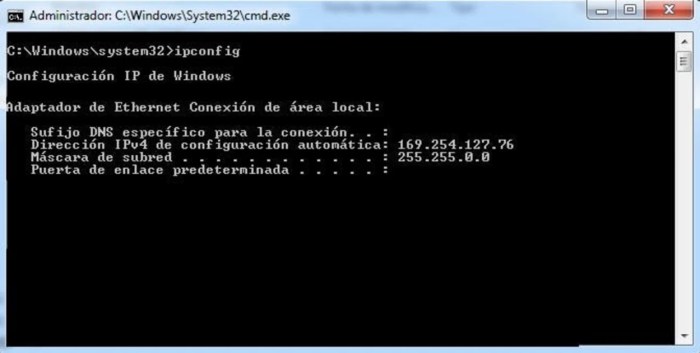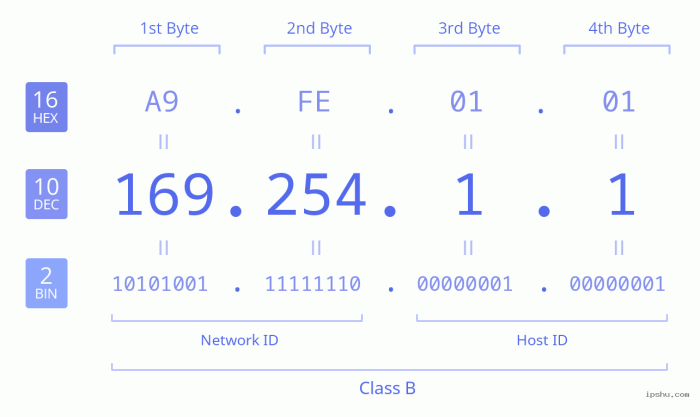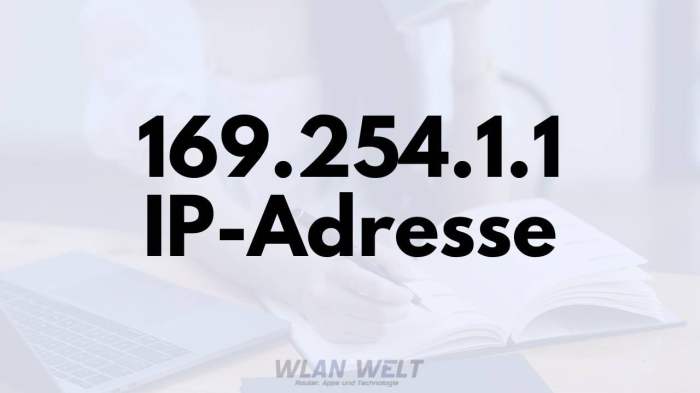Which of the following is a valid apipa address – When it comes to IP addressing, understanding the concept of valid Automatic Private IP Addressing (APIPA) addresses is crucial. This article delves into the intricacies of APIPA addresses, exploring their range, identification methods, assignment process, usage scenarios, and resolution mechanisms.
1. API Address Validity

Automatic Private IP Addressing (APIPA) addresses are automatically assigned IP addresses within the range of 169.254.0.0 to 169.254.255.255. These addresses are considered valid APIPA addresses and are used when a device cannot obtain an IP address from a DHCP server.
2. Identifying APIPA Addresses
To identify valid APIPA addresses within a given IP range, look for addresses that fall within the 169.254.0.0 to 169.254.255.255 range. APIPA addresses also have the following characteristics:
- They start with the prefix 169.254.
- They are not assigned by a DHCP server.
- They are typically used when a device cannot obtain an IP address from a DHCP server.
3. APIPA Address Assignment

APIPA addresses are automatically assigned to devices that are unable to obtain an IP address from a DHCP server. This occurs when the device is connected to a network that does not have a DHCP server or when the DHCP server is unavailable.
The APIPA address assignment process is as follows:
- The device sends out a DHCP request.
- If the DHCP server does not respond, the device waits for a period of time.
- After the waiting period expires, the device assigns itself an APIPA address.
4. APIPA Address Usage: Which Of The Following Is A Valid Apipa Address

APIPA addresses are typically used in small networks or in networks where there is no DHCP server. They can also be used in situations where the DHCP server is unavailable or when the device is unable to connect to the DHCP server.
APIPA addresses have the following advantages:
- They are easy to configure.
- They do not require a DHCP server.
- They can be used in small networks or in networks where there is no DHCP server.
APIPA addresses also have the following limitations:
- They are not routable.
- They can only be used on the local network.
- They can conflict with other IP addresses on the network.
5. APIPA Address Resolution
APIPA addresses are resolved using the Neighbor Discovery Protocol (NDP). NDP is a protocol that is used to discover and maintain neighbor information on a network. NDP allows devices to determine the MAC address of a device that has an APIPA address.
The NDP process is as follows:
- The device sends out an NDP solicitation message.
- The device that has the APIPA address responds with an NDP advertisement message.
- The device that sent the NDP solicitation message then updates its neighbor table with the MAC address of the device that has the APIPA address.
Helpful Answers
What is the range of valid APIPA addresses?
Valid APIPA addresses fall within the range of 169.254.0.1 to 169.254.255.254.
How are APIPA addresses assigned?
APIPA addresses are automatically assigned to devices that are unable to obtain an IP address from a DHCP server.
What are the advantages of using APIPA addresses?
APIPA addresses allow devices to communicate on a network without the need for a DHCP server, making network setup and maintenance easier.